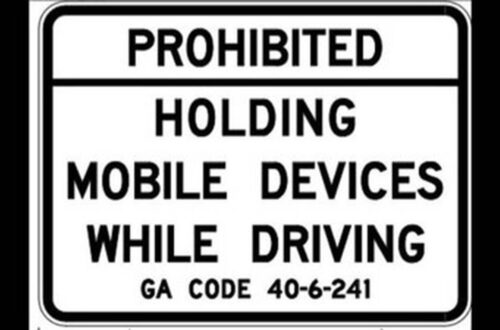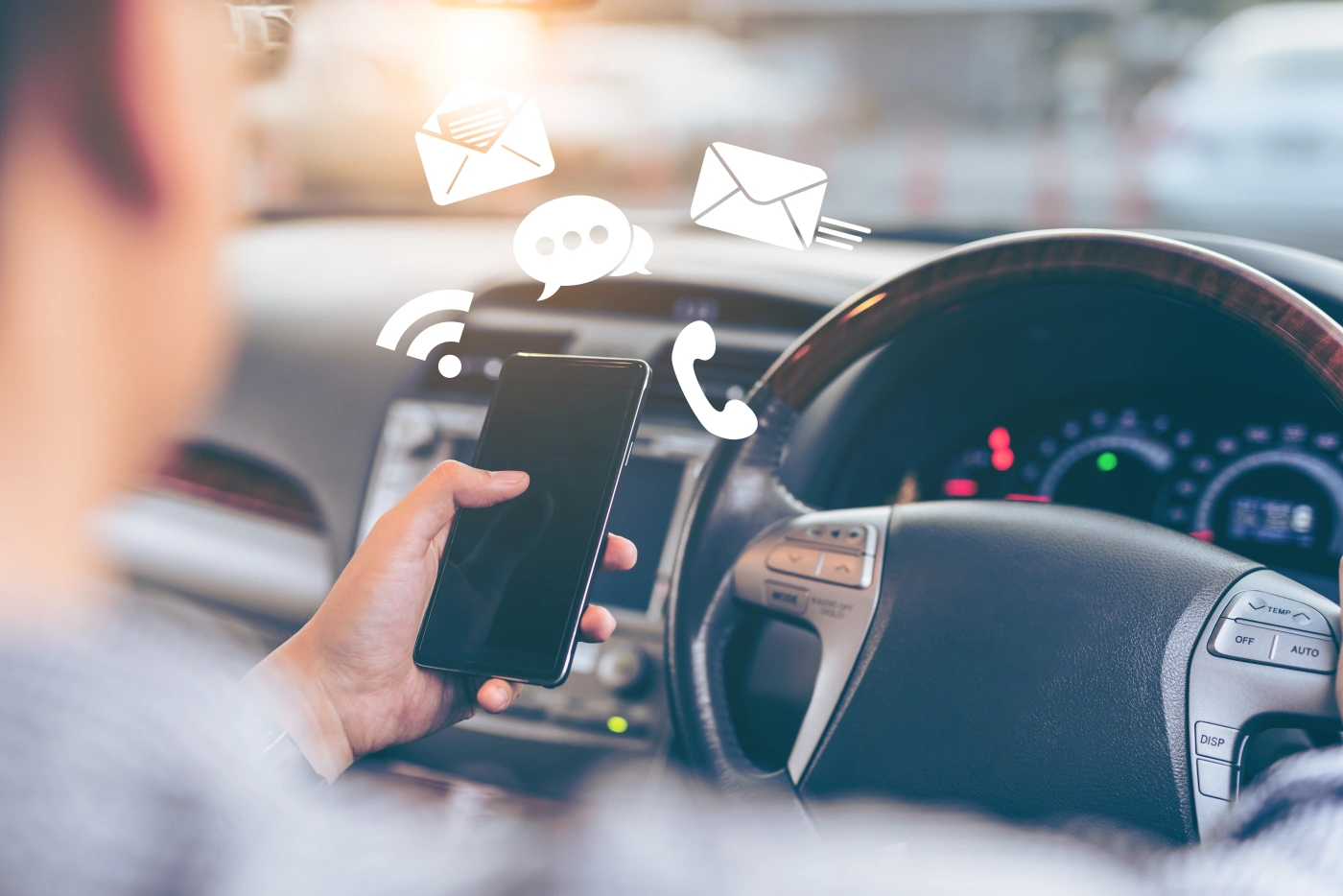Stay safe while driving by understanding distracted driving laws and statistics. Avoid distractions like texting, eating, and adjusting controls that can lead to accidents. Laws vary by state, but generally prohibit texting and cell phone use without hands-free devices. In the U.S., about 9 people die daily due to distracted driving, emphasizing the need for awareness. Prioritize focus and compliance with laws to prevent accidents and stay safe on the road.
The Impact of Distracted Driving
Distracted driving greatly contributes to a high number of accidents on the roads each year. When you take your eyes off the road, even for a few seconds to check a text message or adjust the radio, you increase the risk of a potentially life-threatening situation. It's not just about you; it's also about the safety of everyone sharing the road with you.
Engaging in activities like texting, eating, or even daydreaming while driving diverts your attention from the primary task at hand – operating a vehicle safely. This split-second distraction can have devastating consequences. Rear-end collisions, sideswipes, and even head-on crashes are often the result of drivers not paying full attention to the road ahead.
To prevent these accidents, it's essential to prioritize your focus while driving. Your safety and the safety of others depend on your ability to stay alert and attentive. By avoiding distractions and staying fully engaged in the act of driving, you can help reduce the number of accidents caused by distracted driving each year.
Common Types of Driver Distractions
While driving, it's important to be aware of various common types of distractions that can compromise your focus on the road. One of the most prevalent distractions is the use of mobile phones. Whether it's texting, talking, or checking notifications, interacting with your phone diverts your attention from the task of driving. Adjusting controls within the car, such as the radio or GPS, also takes your focus off the road. Eating and drinking while driving may seem harmless but can cause accidents due to the manual and cognitive distraction they create. Another common distraction is interacting with passengers, especially if engaging in intense conversations or turning to look at them. Daydreaming or being lost in thought can also lead to lapses in attention. Lastly, external factors like looking at billboards or accidents can draw your eyes away from the road. Being mindful of these distractions can help you stay focused and safe while driving.
Understanding Distracted Driving Laws
To guarantee your safety on the road, understanding the laws regarding distracted driving is essential. Distracted driving laws vary by state but generally prohibit activities like texting, talking on the phone without a hands-free device, eating, grooming, and using social media while driving. Many states have implemented fines and penalties for those caught engaging in distracted driving behaviors. Some states have even banned all cell phone use while driving, including hands-free devices, for certain age groups.
Understanding these laws is vital to avoid costly fines, points on your license, and most importantly, prevent accidents that could result in injury or even death. By familiarizing yourself with the distracted driving laws in your state, you can make sure that you are complying with the regulations and doing your part to keep the roads safe for yourself and others. Remember, it only takes a moment of distraction to have devastating consequences, so stay informed and drive responsibly.
Distracted Driving Statistics: A Closer Look
Explore thoroughly the statistics surrounding driving distractions to gain a clearer understanding of the risks on the road. In recent studies, the following insights have been revealed:
- Prevalence: Approximately 9 people are killed, and over 1,000 are injured every day in the United States due to distracted driving.
- Types of Distractions: Common distractions include texting, using a phone, eating, adjusting the radio, or interacting with passengers.
- Impact on Reaction Time: Engaging in distractions while driving can increase your reaction time by up to 3 times, making it harder to avoid accidents.
These statistics underscore the importance of staying focused while behind the wheel. By acknowledging the prevalence of distracted driving, understanding the various types of distractions, and realizing the impact they have on your ability to react quickly, you can take proactive steps to minimize distractions and enhance road safety for yourself and others.
Consequences of Distracted Driving
Driving with distractions greatly increases your risk of accidents and harm to yourself and others on the road. The consequences of distracted driving can be severe and life-changing. When you take your eyes off the road, even for a few seconds, you are more likely to miss important details like sudden stops or pedestrians crossing. This can result in rear-end collisions, side-swipe accidents, or even hitting pedestrians or cyclists. Not only can distracted driving lead to physical injuries, but it can also have notable repercussions. If you cause an accident due to distractions, you may face fines, license suspension, or even criminal charges if someone is seriously injured or killed. Additionally, your insurance rates are expected to rise significantly. Remember, the few seconds of distraction while driving can have lasting consequences on your life and the lives of others. Stay focused and prioritize safety behind the wheel.
Strategies to Avoid Distracted Driving
Implement effective strategies to prevent distractions while driving by staying focused on the road at all times. One of the most vital aspects of safe driving is maintaining your attention on the task at hand. Here are three essential strategies to help you avoid distractions:
- Set Up Your GPS Before Driving: Program your GPS with your destination before you start driving to avoid the temptation of adjusting it while on the road.
- Silence Your Phone: Turn off notifications or switch your phone to silent mode before driving to prevent the urge to check messages or answer calls.
- Secure Loose Items: Make sure all loose items in your car, such as bags, groceries, or electronic devices, are properly secured to prevent them from rolling around and distracting you while driving.
Technologys Role in Combatting Distractions
How can technology play an important role in reducing distractions while driving? Technology offers various solutions to combat distractions on the road. One notable advancement is the integration of hands-free devices in vehicles. These devices allow you to make calls, send messages, or control music without taking your hands off the wheel or eyes off the road. Additionally, smartphone applications have been developed to automatically activate a 'Do Not Disturb' mode when driving, limiting notifications that could tempt you to look at your phone. Some cars now come equipped with driver-assist features like lane departure warnings, forward collision alerts, and automatic emergency braking, which can help prevent accidents caused by distractions. Furthermore, voice-activated controls for navigation, music, and calls reduce the need to physically interact with devices while driving. Embracing these technological advancements can notably decrease distractions and enhance your focus on the road, contributing to safer driving habits.
Promoting Safe Driving Habits
To enhance road safety and reduce distractions, fostering a culture of responsible driving behavior is crucial. It is essential to promote safe driving habits to guarantee the well-being of all road users. Here are three key ways to encourage safe driving practices:
- Limit Distractions: Avoid using your phone, eating, or engaging in any activity that diverts your attention from the road. Focus on driving to react promptly to any situation.
- Obey Traffic Laws: Adhere to speed limits, traffic signals, and road signs. Following these regulations not only keeps you safe but also contributes to the overall order on the roads.
- Practice Patience: Stay calm behind the wheel, especially in heavy traffic or challenging situations. Being patient reduces the likelihood of aggressive driving behaviors that can lead to accidents.
Frequently Asked Questions
How Do Distractions Affect a Driver's Ability to React in Emergency Situations?
When you're distracted, your reaction time in emergencies slows down. Your brain needs to process information quickly, and distractions hinder this. Stay focused on the road to react promptly and keep yourself and others safe.
Are There Specific Penalties for Distracted Driving in Different States or Countries?
In different states or countries, penalties for distracted driving vary. Fines, license points, and even jail time are possible consequences. It's important to be aware of and comply with the laws in your area to avoid these penalties.
What Are Some Lesser-Known Distractions That Can Contribute to Unsafe Driving?
When driving, be cautious of lesser-known distractions like adjusting music, eating, or daydreaming. These seemingly harmless actions can quickly lead to unsafe driving situations. Stay focused on the road to guarantee your safety.
How Do Distractions Impact Different Age Groups or Demographics?
Distractions affect drivers of all ages differently. Younger drivers may struggle with technology distractions, while older drivers might face challenges with multitasking. Understanding these differences can help you stay focused and drive safely.
Is There Ongoing Research or Technology Advancements Aimed at Reducing Distracted Driving Incidents?
There's ongoing research and technology advancements focused on reducing distracted driving incidents. Innovations like hands-free devices and driver assistance systems aim to enhance safety. Stay informed about these developments to stay safe on the road.
Conclusion
Remember, staying safe on the road is essential for you and others around you. By understanding the impact of distracted driving, following the laws, and being aware of the statistics, you can make a difference. Avoiding distractions, utilizing technology to your advantage, and promoting safe driving habits are key to preventing accidents. Take responsibility for your actions behind the wheel and prioritize safety every time you drive. Stay focused and stay safe.



